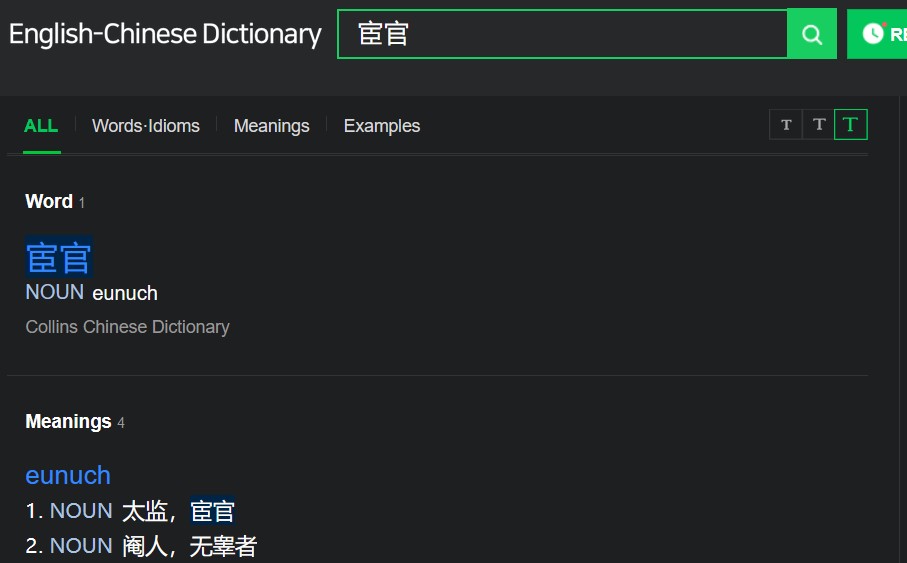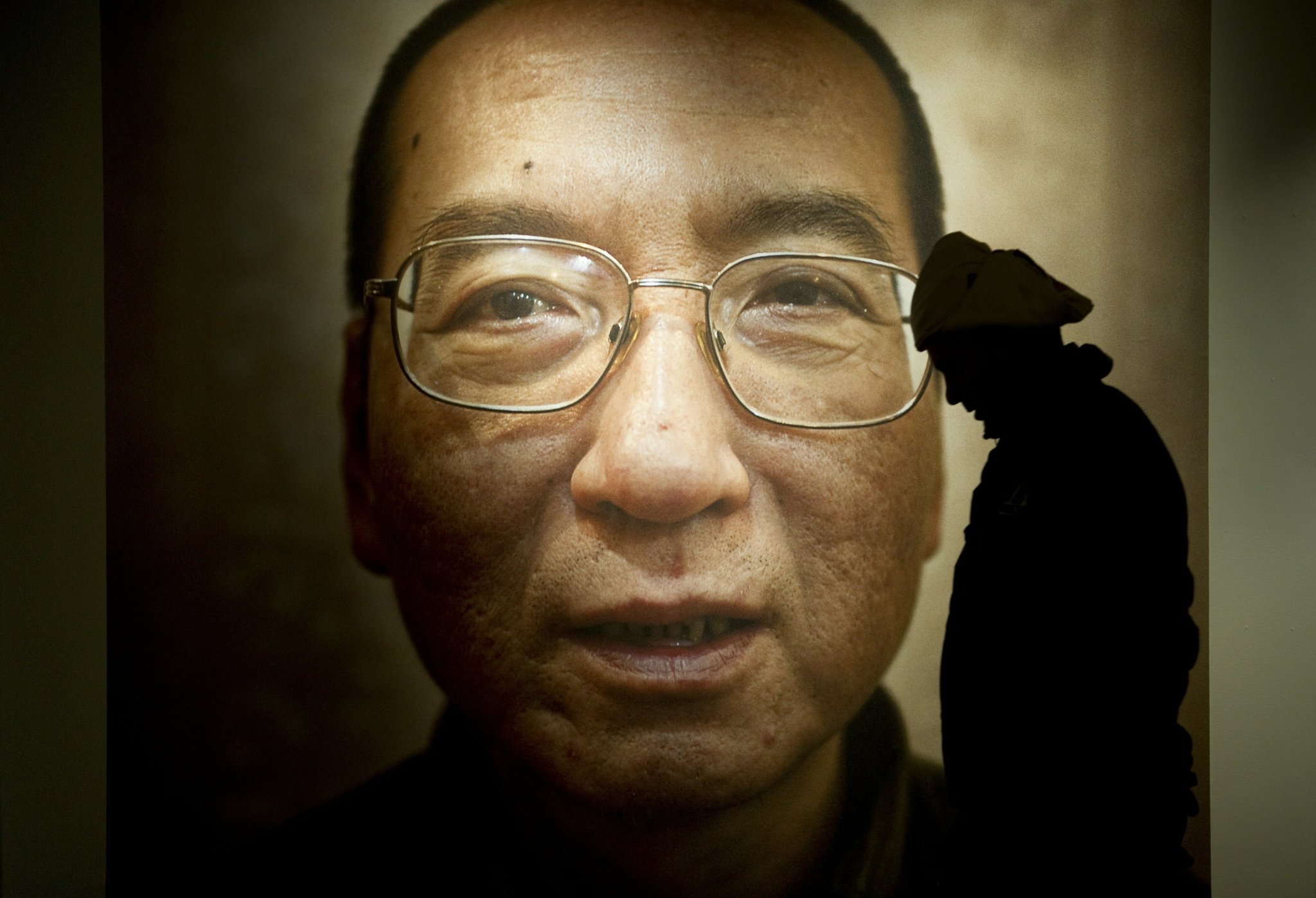Eunuchs, or huanguan (宦官, huàn guān), have been a notable and often controversial presence in Chinese history. These castrated men held unique and powerful positions within the imperial court, shaping the political and cultural landscape of China for centuries. From their origins to their roles, this blog post explores the role of eunuchs in Chinese history and how they were perceived by the people of their time.
Anytime is a good time to read up on eunuchs in historical China. After all, reading about Chinese history enriches your understanding of cultural context, idiomatic expressions, and historical references embedded in the Chinese language.
Origins and roles: from servants to powerbrokers
The tradition of employing eunuchs in the Chinese court dates back to ancient times, with their roles evolving significantly over the millennia. Why eunuchs? Well, originally, eunuchs were primarily used as palace servants due to their inability to produce heirs, thus posing no threat to the royal bloodline. The Chinese term for eunuch, taijian (太监, tài jiàn), literally means “major supervisor”, which seems to reflect their administrative duties in the palace.
However, their influence grew as they became trusted confidants and advisors to emperors. Since they hadn’t any family ties or lineage, eunuchs were seen as loyal servants whose fortunes were tied directly to the emperor. This unique position allowed some eunuchs to wield immense power, often surpassing that of high-ranking officials.
Fun facts about eunuchs in Chinese history
Ming Dynasty record-holder: The Ming Dynasty employed a staggering number of eunuchs at its height, with historical records suggesting there were over 100,000 eunuchs serving in the imperial palace (that seems a rather high number). This was the largest number of eunuchs ever employed at one time in Chinese history.
Imperial “police” force: Some eunuchs served in a specialized role known as the “Eastern Depot” (Dongchang 东厂, Dōng chǎng), which functioned as a secret police force during the Ming Dynasty. These eunuchs were involved in intelligence gathering and internal security. This made them a powerful and feared group within the empire.
Influence on fashion and etiquette: Eunuchs often played a significant role in the court’s cultural life, even influencing fashion and etiquette. Due to their close association with the imperial family, they helped to set trends in clothing and behavior that were emulated by the elite classes.
Unique burial practices: Because eunuchs could not traditionally have offspring or a family lineage, their burials sometimes featured peculiar rites. For instance, to ensure a semblance of a normal life, some eunuchs were buried with wooden effigies of children (!), symbolizing the offspring they could never have.
Literary and artistic patrons: Beyond politics and palace duties, many eunuchs were patrons of the arts. They often amassed significant wealth and used it to sponsor poets, painters, and scholars. Notable eunuchs like Zheng He and Liu Jin (刘瑾, Liú Jǐn) were known for their cultural patronage, contributing to the flourishing of art and literature during their times.
Did eunuchs engage in sexual practices?
The topic of eunuchs and sexual practices in China is complex and nuanced, given their physical condition and the cultural context of the times. While eunuchs were physically castrated, which typically involved the removal of the testes and sometimes the penis, historical records and cultural accounts suggest that eunuchs still engaged in various forms of intimacy, although these did not involve traditional sexual intercourse.
Historical accounts and cultural perceptions
Relationships and Intimacy: Some historical records hint at eunuchs forming close, intimate relationships with women, including concubines and palace maids. Given their unique position and the trust placed in them by the emperor, eunuchs often had access to the women’s quarters (harem, 后宫, hòu gōng) in the palace. While eunuchs were not capable of traditional procreation, this did not preclude other forms of physical intimacy. The exact nature of these relationships is often left ambiguous in historical texts, but it is implied that they could involve non-penetrative sexual acts.
Homosexual relationships: There are also instances where eunuchs are suggested to have had homosexual relationships, either with other eunuchs or with non-eunuch men. These relationships could range from emotional and romantic to physical. In some cases, powerful eunuchs had considerable wealth and status, making them attractive companions or patrons.
Masculine and feminine roles: The perception of eunuchs often fluctuated between viewing them as emasculated men and seeing them as a distinct gender category. This ambiguity sometimes influenced the roles they could play in intimate relationships. For example, some eunuchs adopted feminine mannerisms or dress, which may have facilitated different forms of relationships, particularly within the palace environment.
Evidence and interpretation
Explicit historical documentation on the intimate lives of eunuchs is rare. This scarcity is partly due to the sensitive nature of the topic and the social taboos surrounding discussions of sexuality, especially within the conservative cultural framework of historical China. Additionally, most of the surviving records were written by officials or scholars who might have viewed such topics as inappropriate for formal historical accounts.
Notable eunuchs in Chinese history
Several eunuchs left an indelible mark on Chinese history, with their names echoing through the annals of time. Here are a few notable figures:
Zheng He (郑和, Zhèng Hé)
Perhaps the most famous eunuch in Chinese history, Zheng He was an explorer and diplomat during the Ming Dynasty (明朝, Míng cháo). He led seven maritime expeditions, known as the “Treasure Voyages” (baochuan 宝船, bǎo chuán), which expanded China’s influence across the Indian Ocean, showcasing the grandeur and power of the Ming Dynasty.
Wei Zhongxian (魏忠贤, Wèi Zhōngxián)
Wei Zhongxian was a notorious eunuch during the late Ming Dynasty. Known for his ruthless consolidation of power, he became the de facto ruler of China through manipulation and elimination of his enemies. His era, often referred to as the “Reign of Wei Zhongxian,” highlights the potential dangers of unchecked eunuch power.
Cai Lun (蔡伦, Cài Lún)
Cai Lun, an official in the Han Dynasty (汉朝, Hàn cháo), is credited with the invention of paper (zhi 纸, zhǐ). Although his status as a eunuch is often debated, his contributions to Chinese civilization are undeniable, as paper revolutionized the recording and dissemination of information.
Public perception: trust, fear, and ambiguity
What did ordinary people think of eunuchs and their position of power? On one hand, they were trusted insiders, often seen as loyal and dependable due to their unique position in the court. The lack of familial ties meant they were perceived as less likely to engage in nepotism, a quality highly valued by emperors.
On the other hand, the extraordinary power accumulated by some eunuchs led to widespread fear and distrust. Their influence was frequently viewed with suspicion, as it could destabilize traditional power structures. Historical accounts often depict eunuchs as corrupt and manipulative, particularly when they overstepped their roles as servants and became powerbrokers.
Moreover, ordinary Chinese people had a mixture of pity and disdain for eunuchs. The physical mutilation involved in becoming a eunuch was seen as a loss of masculinity and social status, relegating them to a marginal, if paradoxically powerful, position in society. This led to a kind of dichotomy where eunuchs were simultaneously envied for their access to power and pitied or mocked for their physical condition.
The decline of eunuch power
The influence of eunuchs peaked during the Ming Dynasty but began to wane with the advent of the Qing Dynasty (清朝, Qīng cháo). The Qing rulers were cautious of the potential dangers posed by powerful eunuchs, implementing strict regulations to curb their influence. The final blow to the institution of eunuchs came with the fall of the Qing Dynasty in 1912, which marked the end of imperial China and the abolishment of the eunuch system.
Conclusion
Eunuchs were an integral part of Chinese history. They served as both indispensable aides and formidable power players within the imperial court. Their unique position and the extraordinary roles they played make them a fascinating subject of study. Understanding the lives and influence of eunuchs not only sheds light on Chinese history but also offers insights into the complexities of power, loyalty, and social dynamics.
While eunuchs in China often held significant power and influence within the imperial court, there is no historical record of them successfully overthrowing an emperor or establishing their own dynasty.
Sources & further reading
Eunuchs in Ancient China (worldhistory.org)
Eunuchs in China (wikipedia.org)
宦官 (wikipedia.org)
How an army of eunuchs ran the Forbidden City (South China Morning Post)
How China Became a “Castrated Civilization” and Eunuchs a “Third Sex” (Transgender China, Edited by Howard Chiang)
Eunuchs: Angels or Devils in Disguise? (SHS Web of Conferences)
Chinese TV-series featuring eunuchs
“The Rise of the Phoenixes” (天盛长歌, Tiānshèng Chánggē)
Plot: This historical drama centers on political intrigue, power struggles, and courtly machinations in a fictionalized version of ancient China. Eunuchs play significant roles as they navigate the treacherous waters of court politics.
Notable Characters: The series features several key eunuch characters who serve as loyal advisors, spies, and power brokers within the palace.
“The Story of Yanxi Palace” (延禧攻略, Yánxǐ Gōnglǜe)
Plot: Set during the Qing Dynasty, this series follows the life of a palace maid who rises through the ranks, alongside the intricate political and romantic dynamics within the Forbidden City. Eunuchs are portrayed as both trusted aides and formidable figures in palace intrigue.
Notable Characters: Eunuch Li Yu, a trusted servant of Emperor Qianlong, plays a pivotal role in the story.
“Ruyi’s Royal Love in the Palace” (如懿传, Rúyì Zhuàn)
Plot: This drama portrays the life of Empress Ruyi and her complex relationship with Emperor Qianlong, exploring the power struggles and personal dynamics within the royal harem. Eunuchs in the series are depicted as key players in the court’s political landscape.
Notable Characters: The series features prominent eunuch characters who influence court politics and the personal lives of the royal family.



